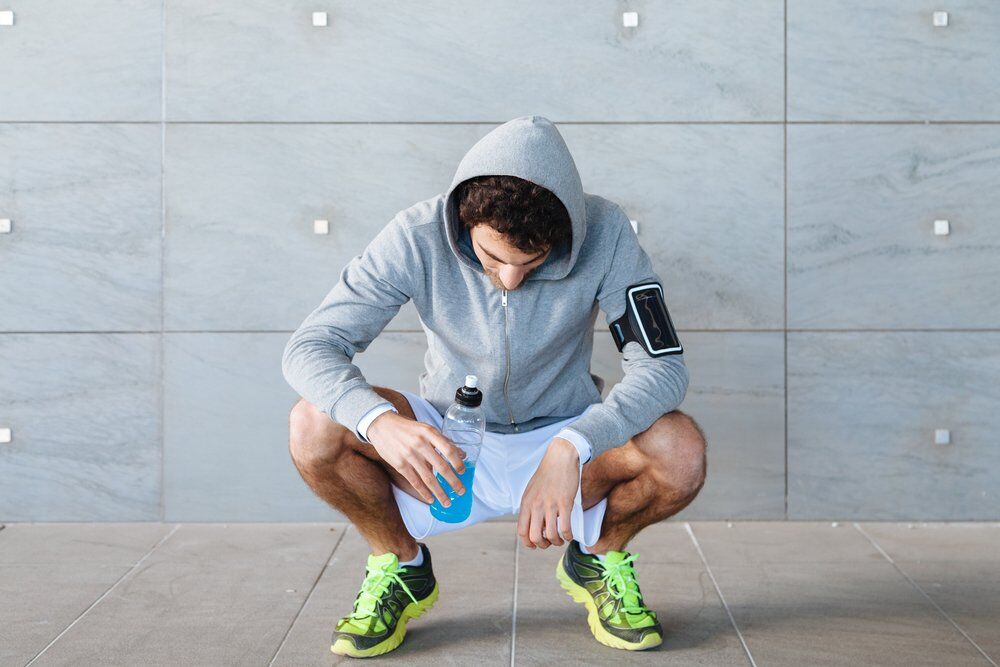
How Sleep Effects Performance
Whether you are a competitive athlete or just a casual gym goer, getting an equate amount of sleep each night is essential to helping you perform at your best and ensure your making progress each week. This is because physical activity, and in particular strenuous exercise, puts stress on our muscles and central nervous system, which requires sleep to allow them to fully recover and recuperate.
The more physically active we are, the more sleep we need to fully recover. Its been known that athletes such as Roger Federer and Usain bolt sleep up to 10-12 hours each night in order to give their bodies enough time to repair and allow them to perform at their peak physical best.
Sleep is widely known to be needed for optimal health, but for athletic performance it becomes an essential pillar of success.
Positive Effects of Sleep
We all know that we feel better and more alert after a goods nights sleep, but just how much can it benefit us physically?
One study that followed the Basketball team of Stanford University found that when players aimed to get a minimum of 10 hours in bed each night they demonstrated quicker sprinting speeds and their free throws improved in accuracy by 9%. Alongside this they also reported overall improvements in their mental and physical wellbeing. (1)
Those aren’t the only benefits of getting in an adequate number of hours sleep each night however, as its also been shown that sleep has a direct correlation to a person’s peak muscle strength and vertical jump height, meaning the more you sleep, the stronger and more explosive your muscle fibres will be. It’s also been found that you’re also 20-30% better in terms of skilled performance after a good night’s sleep than you were at the end of the practice session the day before.
The quality and quantity of sleep that we get definitely has a major role in our physical and mental capabilities. In order to perform at our best, we need to be getting at least 7-9 hours of sleep each night, anything less and our physically capabilities start to deteriorate and rapidly so.
When we fail to hit the required number of hours sleep needed it doesn’t take long for our body to start showing us the detrimental results.
Detrimental Effects of Lack of Sleep
One of the most important processes to happen within the body whilst we sleep is the release of Growth Hormone which plays a role in everything from building muscle, fat loss, cell reproduction and immune health. When we miss out on sleep, we also miss out on this essential hormone which plays a direct role in our physical performance (2)
Its not only a physical deterioration that occurs through lack of sleep but a mental one too. Fail to get your 8-10 hours each night an you’ll likely find yourself waking up less motivated to train, with reduced alertness and poorer decision making abilities (3).
This is down to sleep playing a key role in replenishing neurotransmitters, which are essentially little chemical messengers that carry, boost and balances signals between neurons and nerve cells within the body, affecting a wide variety of processes, both physical and psychological.
Sleep also plays a vital role in keeping our heart, lungs and blood vessels all functioning properly, which means that people who don’t get enough sleep are more prone to cardiovascular disease and have an increased risk of suffering from a stroke or heart attack (4)
The final major influence sleep has over our physical performance is its relation to injury rate. Not getting in the required number of hours sleep has been shown to directly increase the chances of injury gained through physical performance. A study at the University of California showed that injury rates were higher amongst those who got less than eight hours of sleep compared to those who got more than 8 hours. (5)
Despite it often being an overlooked part of the process of becoming a better athlete, with more focus being spent on technique, training programmes and nutrition, it is undeniable that sleep is one of, if not the most, important factors when it comes to us being able to perform to our peak physical best, and allowing is to do so for longer, injury free.
The term “You snooze. You lose” may just be one of the most inaccurate sayings ever to exist.
Refrences
- Mah CD, Mah KE, Kezirian EJ, Dement WC. The effects of sleep extension on the athletic performance of collegiate basketball players. Sleep. 2011;34(7).
- Sassin JF, Parker DC, Mace JW, Gotlin RW, Johnson LC, Rossman LG. Human growth hormone release: relation to slow-wave sleep and sleep-walking cycles. Science (New York, NY). 1969 Aug 1;165(3892
- Alhola P, Polo-Kantola P. Sleep deprivation: Impact on cognitive performance. Neuropsychiatr Dis Treat. 2007;3(5)
- He Q, Zhang P, Li G, Dai H, Shi J. The association between insomnia symptoms and risk of cardio-cerebral vascular events: A meta-analysis of prospective cohort studies. European journal of preventive cardiology. 2017 Jul;24(10)
- Milewski MD1, Skaggs DL, Bishop GA, Pace JL, Ibrahim DA, Wren TA, Barzdukas A. Chronic lack of sleep is associated with increased sports injuries in adolescent athletes. Journal of pediatric orthopedics. 2014 Mar;34(2)


No Comments yet!